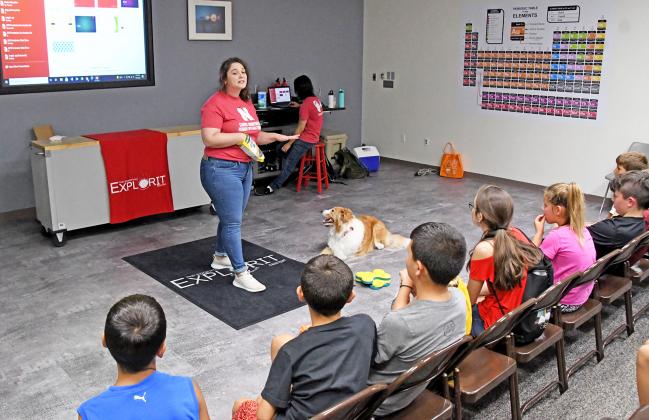Edgerton camp helps kids, dogs train with science
People say dogs are a man’s best friend and the Edgerton Dog Science camp not only looked at how participants could train their canine companions but also the science behind it.
Teaming up with the Canine Cognition and Human Interaction Lab from the University of Nebraska-Lincoln, campers learned how knowing how a dog thinks can help them optimize their training.
London Wolff, Billy Lem and companion dog Linus broke down not only how dogs think but how humans interact with them.
“How I like to introduce this is to think about what it’s like to be a dog,” Wolff began. “When us researchers go about thinking about how to understand these creatures we have to take a step back from being human for a minute. We have to realize that other minds are different than ours.”
To read more, please see this week's print or e-edition.





